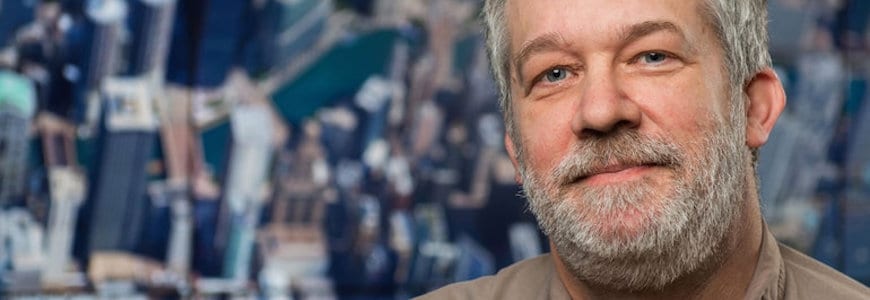By Rob Mitchum // March 24, 2016
UrbanCCD Director and Computation Institute Senior Fellow Charlie Catlett was named one of 25 “Doers, Dreamers & Drivers” of 2016 by Government Technology. The honor celebrates his work creating partnerships between Argonne National Laboratory, University of Chicago, and the City of Chicago on innovative projects such as Array of Things, Plenario, and OpenGrid.
A champion of the movement to create partnerships between cities and research institutions, Catlett believes that researchers can take the massive amounts of data that government generates and put it to use.
“Most of that data goes unused because they don’t have the [resources] to analyze it,” he said.
Earlier this month, Government Technology wrote about Array of Thingsas a shining example of how these partnerships can succeed. The piece also focused on the MetroLab Network, which includes UrbanCCD, and how it is helping cities learn to do more with government data while researchers learn about the operations of cities.
“Researchers are not familiar with the challenges that a city has, from the point of view of an official making [a] decision,” Catlett told reporter Ben Miller. “They may be users of cities as individuals, but what cities offer in terms of a partnership is a glimpse into the complexities of the challenges they’re facing.”
Joining Catlett on the Doers, Dreamers, & Drivers list are CIOs and city managers from major cities such as Cincinnati, Los Angeles, and Boston, the states of Georgia, Mississippi, and New York, as well as data teams and personnel from the White House and other branches of the federal government.
“This year’s Top 25 have a record of using technology to solve problems, improve citizen services and transform internal operations,” said Noelle Knell, editor, Government Technology magazine. “These are the people that have found ways to cut through the public sector’s barriers to innovation — tight budgets, organizational inertia, politics as usual, etc. — to reshape government operations for the better.”

